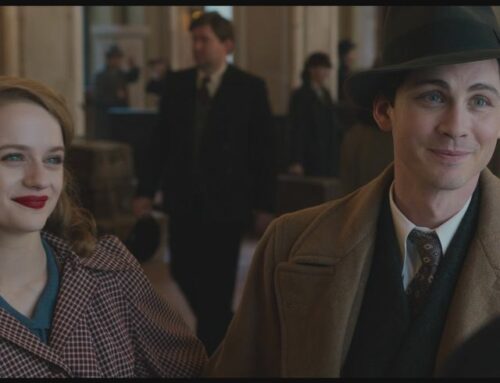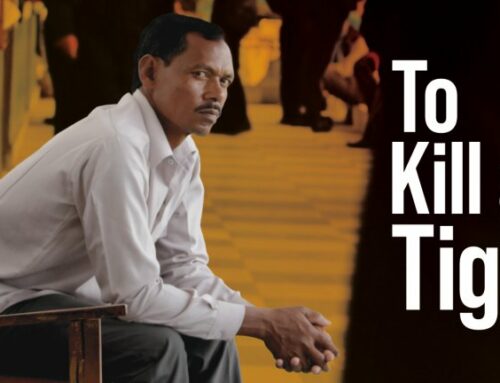SELMA puts you there–right in the middle of the racism at the heart of these United States. Many of us lived it in the sixties, in the deep south with its segregated restaurants, hotels, and water fountains, and later, on television where the rest of us watched the local vitriol boil over and onto the world stage as the great civil rights leader Martin Luther King Jr. led a march to insist on what the law had already decreed– the right to vote. The new film by Ava DuVernay orchestrates a powerful cast with seriousness, dignity– perhaps too much– and unsparingly shows us the bitter reality that Selma unmasked to the world.
Early in the film, Oprah Winfrey who is impressively sympathetic as a middle-aged woman named Annie Lee Cooper who walks quietly into a municipal building to register to vote. She is met with open disdain by a sneering white man on the other side of the desk. It’s clear Annie has been there many times before, filling out the forms, trying to prove she is qualified to do what any adult white person in the country takes for granted– register to vote. It’s also immediately clear, that this man has no intention of letting that happen, and will wield his small power to raise the hurdles higher and higher until she can no longer jump over them.
The scene is enormously effective– and a key to how this director works. The encounter is paced in real human time, precisely calibrated to reveal every nuance of the power struggle between these two individuals, the camera in close on the shifting emotions– Annie tentatively hopeful, confident, but careful not to appear too bold, the man’s initial amusement and condescension turning to anger at her effrontery, and finally smugly triumphant as she quietly resigns herself to her inevitable defeat. The scene is seared in my imagination, multiplied over and over as the realization hits, that this is what thousands of black Americans experienced time and time again.
Earlier the film shows us five little girls in their Sunday best, chatting and skipping down the stairs of their church on a bright Sunday morning when suddenly, mid-sentence, the Church explodes in their faces and ours. DuVernay creates the whole experience, counting on our humanity to fill in the blanks and not only understand, but feel what happened then and there, as well as the fallout of that soul-crushing event. The film means to be a history lesson lived.
By 1965, Martin Luther King Jr. had had enough and led what was to be a peaceful, non-violent protest march from Selma to Montgomery, Alabama to secure equal voting rights. The world watched in horror as the local police beat the unarmed demonstrators bloody, men and women, old and young. And the scenario incited many whites to join the epic march that would culminate in President Johnson’s landmark legislation clearing the way for the law to be enforced.
Paul Webb’s script aptly zeros in on the reasons why voting is THE pivotal issue– the lever to self-determination– and the very careful planning and tactics employed by the powerful figures who coalesced around that march. An impressive supporting cast steps up here including: Cuba Gooding Jr., Common, Martin Sheen, Giovanni Ribisi, Alessandro Nivola. Tim Roth is a cunning and racist Governor George Wallace who sits stubbornly on the wrong side of an issue of conscience, while Tom Wilkinson looms large as a strapping president wrangling with the immovable King.
The movie has stirred up controversies of its own; Johnson’s family and some who were there for King’s historic meetings with the president argue that the film’s portrayal of LBJ is inaccurately unsympathetic. King’s family would not allow DuVernay to use King’s most famous speeches for legal reasons. And the film while nominated for Best Picture, has not earned the cast and its director any nominations. I would certainly argue that David Oyelowo was robbed–as Martin Luther King Jr., Oyelowo captures King’s stance, his fiery yet noble rhetoric, his eloquent spirit. Would that the director hadn’t been so set on ennobling him; that the civil rights leader and the cause were noble is all too clear. More grit, less poetry would have fleshed out the film and served DuVernay’s purposes better. Carmen Ejogo suffers most from this problem. While gorgeous as Coretta Scott King, she is stuck with the stiffest scenes; even in private husband and wife never lose their dignity or their cool, and appear to be delivering speeches rather than truly engaging each other.
The final scenes intercut with real footage of the actual march from Selma– is poetry in motion; DuVernay is to be forgiven for giving into the poetry of these pivotal moments in our history, for leaning into the beauty of the truth and courage of those who took part, at great personal risk. I lived through this history, but the film reminded me of what needed to happen, and still needs to happen if we as a country are to be whole.
I hadn’t seen SELMA until recently due to the vagaries of release dates and advance screenings, and it was too late for it to figure into my “ten best” list. I am revising. SELMA is one of the BEST films of the year. See it.






Leave A Comment
You must be logged in to post a comment.